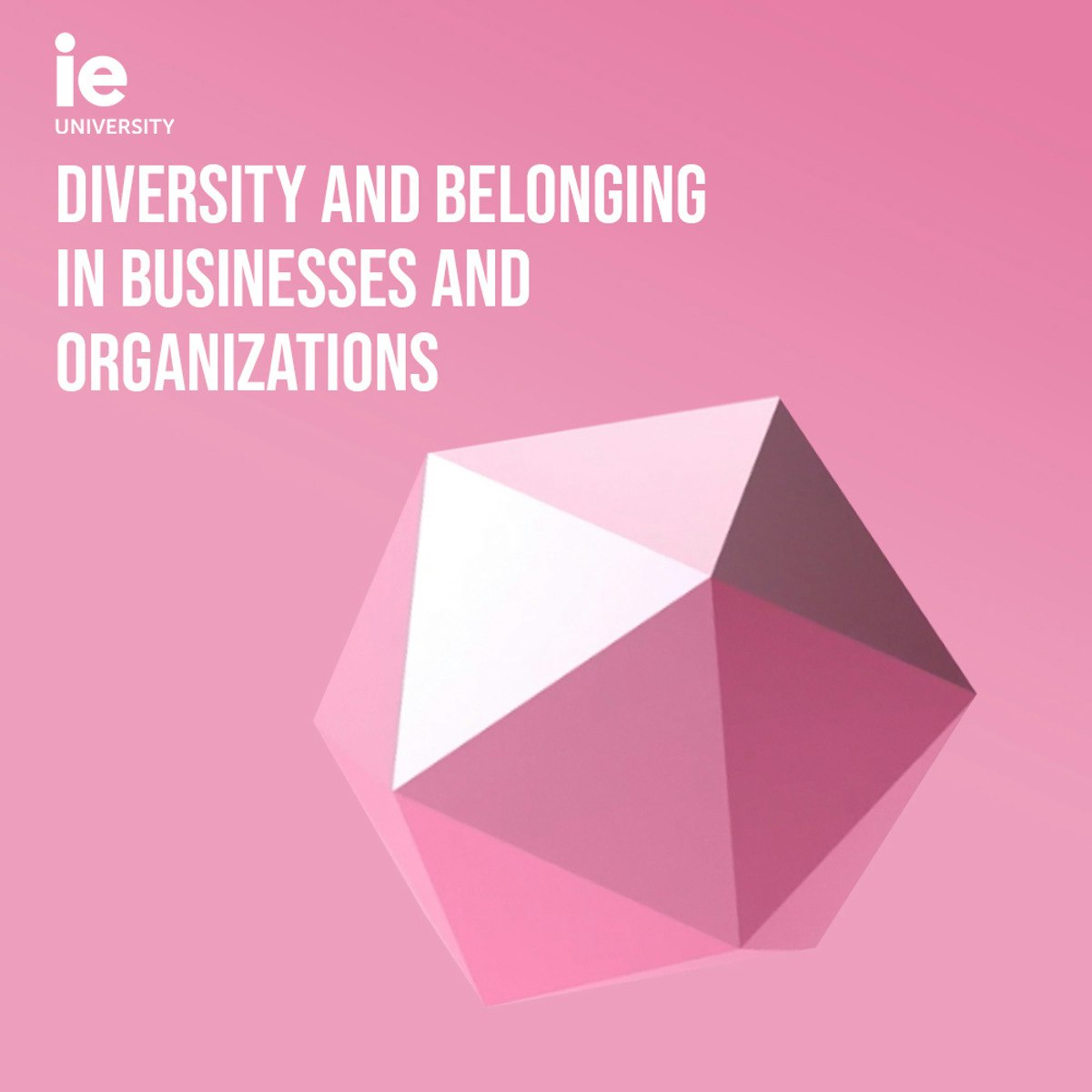Back to Courses









Leadership And Management Courses - Page 8
Showing results 71-80 of 600

Smart Cities – Management of Smart Urban Infrastructures
Learn about Smart Cities within the context of management of urban infrastructures. The introduction of Smart urban technologies into legacy infrastructures has resulted in numerous challenges and opportunities for contemporary cities and will continue to do so. This course will help you to understand how to make the best of these smart technologies in your cities’ legacy infrastructures.
Over the past few years, advances in the Information and Communication Technologies (ICTs) have significantly challenged the traditionally stable land scape of urban infrastructure service provision. This has resulted in increasing interest from both technology vendors and public authorities in the transition of cities towards so-called “Smart Cities”. Although such “Smart technologies” can provide immense opportunities for citizens and service providers alike, the ICTs often act as disruptive innovators of urban infrastructure service provision.
In this MOOC, you will gain a thorough understanding of the challenges and opportunities associated with the Smart urban infrastructures, namely Smart urban transportation and Smart urban energy systems. Over the journey of this 5-week online course you will learn about the most important principles for the management of Smart urban infrastructures as well as the applications of these principles in the transportation and energy sectors.
This course does not have any prerequisites. However, to take the most away from of this MOOC, we strongly encourage you to enroll in our other MOOC on the Management of Urban Infrastructures, which has been widely praised by learners.
Through this course, you will:
- Gain a deep understanding of the nature of disruptive innovations (smart technologies) in urban infrastructure systems;
- Learn about state-of-the-art strategies for effectively managing the transition from legacy infrastructures to smart urban systems;
- Study the management of the transition phase from legacy infrastructure systems to smart cities by supporting innovations while avoiding early lock-in; and
- Understand potential applications of the materials learned in this course within the context of the management of smart urban transportation systems as well as smart urban energy systems.

Negotiation Skills and Effective Communication
We start making negotiations as soon as our day begins, through all our interactions, either work, social, or family-related. But have you ever wondered how efficiently you negotiate, and whether you could be better at it? This is a straightforward opportunity to put into practice all the knowledge you have acquired, and to confirm that the negotiation process is dynamic and can always be improved.
The course integrates the most recent advances in the development of negotiation skills, based on modern life complexities, in a simple and direct way.
We start out with the structure of effective communication in a negotiation, with the intention of identifying our opportunity areas, and improving them through active learning mechanisms.
And what can we say about the role emotions play in a negotiation process? It is necessary to acknowledge , manage, and take advantage of them by using emotional intelligence mechanisms.
Negotiation, by definition, implies the relationship between two or more parties who eventually express opposing interests and demand skills for problem-solving. In this course you will learn to identify and manage its irreversible consequences in advance.

إدارة المشروعات في أجايل
هذه هي الدورة التدريبية الخامسة في برنامج شهادة إدارة المشروعات من Google. سوف تستكشف هذه الدورة تاريخ ونهج وفلسفة إدارة المشروعات في أجايل، بما في ذلك إطار عمل سْكرَم. سوف تتعلم كيفية التفريق والمزج بين أجايل والنهج الأخرى لإدارة المشروعات. أثناء تقدمك خلال الدورة التدريبية، ستتعرف على المزيد عن سْكرَم، من خلال استكشاف ركائزها وقيمها ومقارنة أدوار فريق سْكرَم الأساسية. سوف تكتشف كيفية إنشاء قائمة مهام المنتج وإدارتها وتنقيحها، وتنفيذ استراتيجيات التسليم القائمة على القيمة من أجايل، وتحديد خارطة طريق القيمة. سوف تتعلم أيضًا استراتيجيات لتنظيم أحداث سْكرَم الخمسة المهمة لفريق سْكرَم بشكل فعال، وتقديم نهج أجايل أو سْكرَم لمؤسسة ما، وتدريب فريق أجايل. وأخيرا، سوف تتعلم كيفية البحث عن الفرص وإيجادها في أدوار أجايل. سيستمر مديرو مشروعات Google الحاليون في إرشادك وتزويدك بالنُهُج والأدوات والموارد العملية لتحقيق أهدافك.
يجب أن يكون المتعلمون الذين يكملون هذا البرنامج مجهزين للتقدم لوظائف المستوى التمهيدي كمديري المشروعات. لا تلزم خبرة سابقة.
بنهاية هذه الدورة، ستكون قادرًا على:
شرح نهج وفلسفة إدارة المشروعات في أجايل، بما في ذلك القيم والمبادئ.
- شرح ركائز سْكرَم وكيفية دعمها لقيم سْكرَم.
- تحديد ومقارنة الأدوار الأساسية في فريق سْكرَم وما الذي يجعلها فعالة.
- إنشاء وإدارة قائمة مهام المنتج وتنقيح قائمة المهام.
- وصف الفعاليات الخمسة الهامة في سْكرَم وكيفية إعداد كل فعالية لفريق سْكرَم.
- تنفيذ استراتيجيات التسليم المبنية على القيمة لأجايل وتحديد خارطة طريق القيمة.
- شرح كيفية تدريب فريق أجايل ومساعدته في التغلب على التحديات.
- إجراء بحث عن وظيفة للحصول على دور أجايل وتعلم كيفية النجاح في مقابلتك.

Effective Communication for Today’s Leader
Interpersonal communication is one of the most important management skills: everyday we relate with our bosses, collaborators, customers and colleagues.
Being a good communicator is synonym to being a good leader.
Interpersonal and group communication helps us to create better business environments, and therefore, to have better results.

Adapt your leadership style
Why are organisational misbehaviours such as cynicism, apathy, bullying and disengagement increasingly prevalent in the workplace? This course examines these tensions and how transformational, authentic and inclusive leadership styles offer an alternative to the more autocratic, job-centred and controlling leadership styles of the past. You’ll learn how the digital revolution, along with an increased focus on projects and teamwork, has dramatically altered the perception of leadership in a way that now demands all organisational members take on some form of self-leadership. And you’ll learn how this change is causing tensions between traditional leaders and the contemporary practices vital to maintain agility in today’s ultra-competitive marketplace. This learning will be complemented by structured activities such as video lectures, quizzes, discussion prompts and written assessments.

Data Science for Business Innovation
The Data Science for Business Innovation nano-course is a compendium of the must-have expertise in data science for executives and middle-management to foster data-driven innovation. The course explains what Data Science is and why it is so hyped.
You will learn:
* the value that Data Science can create
* the main classes of problems that Data Science can solve
* the difference is between descriptive, predictive, and prescriptive analytics
* the roles of machine learning and artificial intelligence.
From a more technical perspective, the course covers supervised, unsupervised and semi-supervised methods, and explains what can be obtained with classification, clustering, and regression techniques. It discusses the role of NoSQL data models and technologies, and the role and impact of scalable cloud-based computation platforms. All topics are covered with example-based lectures, discussing use cases, success stories, and realistic examples.
Following this nano-course, if you wish to further deepen your data science knowledge, you can attend the Data Science for Business Innovation live course https://professionalschool.eitdigital.eu/data-science-for-business-innovation

Diversity and Belonging in Businesses and Organizations
Diversity and Belonging in Businesses and Organizations will help you as an individual, as a team, and an organization to better understand and implement policies and practices that emphasize and promote not only the inclusion but the belonging of all employees. It is aimed to cover the following objectives:
Policies - How to identify and understand the ways in which structural dynamics of an organization can preclude a sense of belonging and how to use inclusive policies as a tool to foster belonging.
Practices - How to design an organizational culture that promotes the wellbeing and belonging of all its constituents through kindness, empathy, openness, and compassion.
People - How to leverage the creation of affinity groups and task forces to overcome structural biases, build community and create a greater sense of belonging.
The final module also introduces complementary resources to bring the pillars together and support an organization's belonging efforts.

Explore Management Concepts through Metaphor and Music
How can exploring and analysing music and metaphors help us to better understand management, work organisations, working lives, and ultimately ourselves too? As you set out on your journey through this innovative course, the answers to these questions will be revealed. Through the lens of metaphor and music, you will be introduced to core managerial and organisational concepts and theories. You will explore issues related to, for example: organisational and work design; motivation and productivity; employee voice; careers; and management and leadership styles. You will research and analyse contemporary management dilemmas and challenges and gain new insights into the lived experience of work. You will explore the power of music to creatively engage and motivate employees, boost their morale, and give voice to workers who might otherwise remain unheard.
The course has been designed to be highly interactive and creative with lots of opportunities for you to share your ideas and engage in discussion and debate with your fellow students. You will develop your own original organisational metaphors, write lyrics to your own company song, write and record your own short radio play, and develop your own motivational music playlist. By the end of the course, your understanding of management, organisations and the lived experience of work will have increased considerably. You will develop new skills in research and creative writing and will have lots of new ideas to take away with you and apply in your own organisation and your own working life.

Product Cost and Investment Cash Flow Analysis
This course discusses costs and business practices to establish the cost of a product. The concept of time value of money (TVM) is developed to determine the present and future values of a series of cash flows. TVM principles are then applied to personal finances and retirement planning. This is a practical course that uses spreadsheets to better prepare learners in engineering and science for a career in industry.
This course can be taken for academic credit as part of CU Boulder’s Master of Engineering in Engineering Management (ME-EM) degree offered on the Coursera platform. The ME-EM is designed to help engineers, scientists, and technical professionals move into leadership and management roles in the engineering and technical sectors. With performance-based admissions and no application process, the ME-EM is ideal for individuals with a broad range of undergraduate education and/or professional experience. Learn more about the ME-EM program at https://www.coursera.org/degrees/me-engineering-management-boulder.

Getting a Consulting Job
This is the #2 course in the specialization on management consulting.
In this course, we will learn how consulting firms work and how they make money. This can help you network with recruiters and prepare for the case interviews. Some of the topics covered:
• What drive project profitability?
• What competencies do I need at each stage in my career?
• How are consulting interviews different?
• How to do well on case interviews?
• How much do I need to practice cases?
Popular Internships and Jobs by Categories
Find Jobs & Internships
Browse
© 2024 BoostGrad | All rights reserved